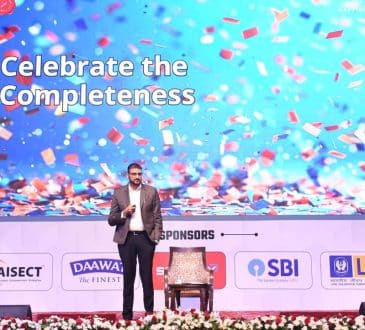Addressing Anxiety as a CEO

Anxiety often carries a negative connotation, but according to therapist Tami Kiekhaefer, LCSW, it doesn’t have to be an obstacle in professional settings. “Anxiety is a natural emotion communicating to your mind to stop and pay attention,” she explains. For business leaders, this heightened state of alertness can serve as a powerful tool rather than a hindrance.
“When anxiety strikes, it’s an alert system,” Kiekhaefer continues. “It signals that something isn’t right, prompting us to assess and address red-flag issues.” Instead of retreating, Kiekhaefer encourages leaders to face anxiety head-on. “Avoiding anxiety is like throwing gasoline on a fire,” she warns. “It only makes things worse.”
By confronting anxiety calmly, leaders can harness their creative minds to find solutions. “Approach the problem with a solid thought process,” Kiekhaefer advises, “not the scattered thinking anxiety often produces.” This shift allows leaders to transform anxiety into an opportunity for change and growth.
Decoding Anxiety: Exploring the Roots and Becoming Empowered
Understanding the root causes of anxiety is crucial for high-achieving professionals. Kiekhaefer identifies two primary triggers: lack of control and undisciplined cognitive processes. “We all need a sense of control in our lives,” she says. “Without it, we grasp at straws, trying to control the uncontrollable.”
This futile attempt to control everything leads to a vicious cycle of anxiety. “The more we grasp, the more out of control we feel,” Kiekhaefer explains. Similarly, an undisciplined mind can exacerbate anxiety. “Our cognitive process can run rampant, leading to worst-case scenarios and what-ifs.”
Recognizing these triggers is the first step in managing anxiety. “Understand that a lack of control and undisciplined thinking are key contributors,” Kiekhaefer notes. The next step is to develop strategies to address these roots, restoring a sense of order and calm.
For business leaders, self-awareness is a critical tool in managing anxiety. “Your body is always talking to you,” Kiekhaefer points out. “Learn to recognize your unique bodily reactions to anxiety.” By paying attention to these signals, leaders can catch anxiety early when it’s most manageable.
In her forthcoming book, From Chaos to Calm: A Six Step Strategy to Break Through Anxiety, Kiekhaefer outlines strategies for recognizing and addressing anxiety. “The body communicates its needs first,” she explains. “If we miss these signs, our thoughts take over, leading to physical reactions that are often impulsive.”
By developing coping skills for these early warning signs, leaders can prevent anxiety from becoming overwhelming. “Learn to listen to your body and address small signs before they escalate,” Kiekhaefer advises.
Transforming Anxiety into Confidence
Transforming anxiety into confidence is a powerful way for business leaders to drive personal and professional growth. “When anxiety is high, confidence is low,” Kiekhaefer states. “By gaining control over anxiety, leaders can boost their confidence.”
Her six-step strategy involves understanding the brain’s basic functions—reacting and protecting—and learning to manage these responses. “Teach your mind to find balance and create logical, yet creative solutions,” Kiekhaefer suggests. This process helps leaders regain control and make strategic decisions.
The key is to dig deep, uncovering and addressing the root causes of anxiety. “Like pulling a weed from the root, dealing with anxiety thoroughly ensures it doesn’t return,” she explains. Additionally, finding gratitude and making peace with the situation can significantly reduce anxiety.
Healing Pathways and Emotional Intelligence
For entrepreneurs dealing with severe anxiety, Kiekhaefer recommends a variety of treatment options. “Don’t try to push through anxiety,” she cautions. “Instead, seek help to address it sustainably.”
Cognitive-behavioral therapy, for instance, can help rework irrational beliefs and provide a starting point for managing anxiety. “You must carve out time to address anxiety,” Kiekhaefer advises. “It’s either wasting energy feeling out of control or working to overcome it. The choice is clear.”
Emotional intelligence (EI) is crucial for managing anxiety in high-pressure environments. Kiekhaefer highlights several key aspects of EI:
- Self-awareness: Recognizing emotions and identifying anxiety triggers.
- Self-regulation: Controlling disruptive emotions to stay calm under pressure.
- Motivation: Maintaining resilience and a positive mindset.
- Empathy: Building supportive relationships and understanding others’ feelings.
- Social skills: Effective communication and conflict resolution.
“EI equips you to manage your emotions and influence others’ emotions,” Kiekhaefer concludes. This leads to a supportive, productive work environment where anxiety is managed, and mental well-being is prioritized.
By addressing anxiety with the right strategies, business leaders can transform this often-misunderstood emotion into a source of power, creativity, and growth.
Crafting Your Story of Resilience
Sharing personal stories of overcoming anxiety can inspire and lead teams more effectively. “By sharing your own experiences, you validate and normalize anxiety for your team,” Kiekhaefer suggests. This approach creates a supportive environment, offering hope and reassurance.
“Validation goes a long way,” she emphasizes. “Sometimes, being a sounding board can help team members get through challenging times.” This openness fosters a culture of support and understanding, essential for a healthy workplace.
Through the practical strategies and insights shared by Tami Kiekhaefer, CEOs and business leaders can learn to manage anxiety, transforming it from a potential hindrance into a powerful ally in their professional and personal lives.
Have you read?
World’s Best Countries To Invest In Or Do Business.
World’s Most Startup-Friendly Countries.
World’s Best Countries For Quality of Life.
Largest Economies Europe In 2024.
GDP of the BRICS countries (2000 to 2028).
Bring the best of the CEOWORLD magazine's global journalism to audiences in the United States and around the world. - Add CEOWORLD magazine to your Google News feed.
Follow CEOWORLD magazine headlines on: Google News, LinkedIn, Twitter, and Facebook.
Copyright 2025 The CEOWORLD magazine. All rights reserved. This material (and any extract from it) must not be copied, redistributed or placed on any website, without CEOWORLD magazine' prior written consent. For media queries, please contact: info@ceoworld.biz








